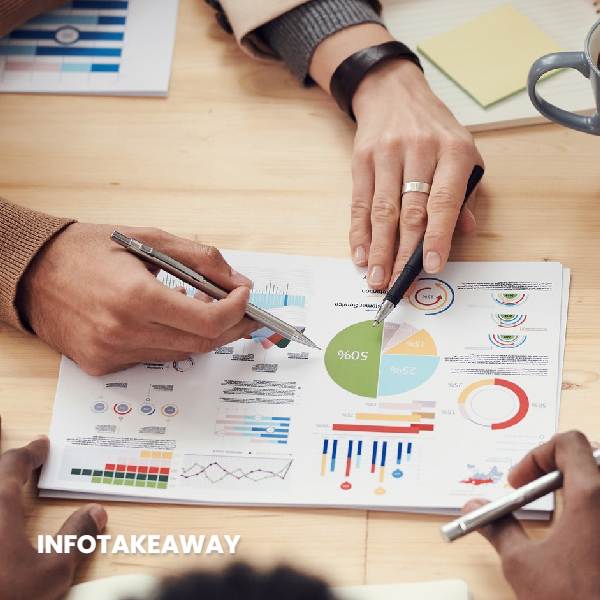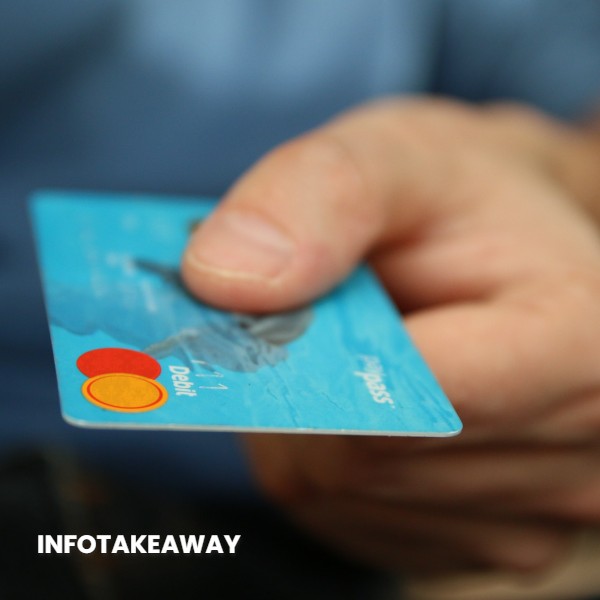You may have wondered “is it possible to live without debt in USA?” Yes, it is.
Too many Americans are living their lives in the shadow of debt, worrying that one setback or emergency could push them over the edge and into bankruptcy. It doesn’t have to be this way, though. Living without debt can seem impossible if you don’t have the right guidance, but with these ten tips, it doesn’t have to be so hard or stressful anymore!
1) Take Control of Your Finances
A lot of people have debt because they don’t manage their money well and aren’t in control of their finances.
Spend some time learning how to manage your budget and get a handle on your spending.
Even if you owe $10,000 in credit card debt, it doesn’t have to be so bad as long as you can continue making monthly payments and not spend any more than that.
It takes work, but taking control of your finances could help you become debt-free quicker than if you remain ignorant to it all.
You might learn something from knowing where every dollar goes! If you’re currently in debt, get out of it as soon as possible.
If you are still unsure about is it possible to live without debt in USA, then worry not as we will delve more deeper into it.
The longer you have credit card debt, student loans or car payments, the more interest you’ll end up paying.
If you don’t have any income to pay your debts with right now, consider using a credit card to pay off your other debts first.
Credit cards often have low introductory rates that can help get you out of debt faster and at a lower cost than if you were to use another method like taking out a loan.
It is important to not just take on new debt while getting rid of old ones; remember to keep an eye on how much money is coming in and going out so that there isn’t too much or too little at any given time.
2) Track Your Expenses
If you want to live without debt, it’s important to know where your money is going.

There are tons of apps out there that can help track your expenses, but nothing beats a good old pen and paper—or even an Excel spreadsheet.
Regardless of which method you choose, tracking where your money goes is a key step in spending less and saving more.
If you don’t know what’s coming in or going out each month, it’s hard to get control over your finances. And if you can’t keep track of where your money is going, how will you ever be able to save?
It might sound obvious, but tracking your expenses is an important first step toward living debt-free.
After all, how can you expect to save money if you don’t even know where it all goes?
3) Don’t Open New Credit Cards

If you’re trying to pay off debt, don’t make things harder on yourself by opening new credit cards. Even if you’re intent on staying out of debt, it’s good practice to live only by your income.
This way, if an emergency hits and you need some cash, it will be much easier to manage without having to turn to a loan or credit card that could spell financial trouble down the road.
Plus, paying with cash makes spending less convenient—you have to think about every purchase—which can help keep unnecessary expenses at bay.
Instead of charging everything to plastic, consider using a debit card instead.
The limit is lower (so you won’t spend as much), but in most cases it can still be used at ATMs and stores just like a credit card.
And because money is withdrawn directly from your bank account each time you use it, there are no interest charges—only fees for checking accounts or ATM withdrawals if you use these features regularly. And if you do charge something? Just make sure to pay off that balance in full and on time every month.
4) Set up an Emergency Fund
Some unexpected expenses are inevitable in life, so it’s a good idea to set up an emergency fund. This way, you’ll have money set aside to pay for these unexpected expenses. For example, say your car breaks down and you need to replace it; having an emergency fund will make sure that you can easily pay for a new car without taking on additional debt.
5) Know What Debts You Owe
Even if you don’t want to carry debt, it can be hard to avoid if you don’t know what debt is lurking in your life.
Make a list of everything you owe and how much money each thing costs. It will help you get a real sense of where your money goes and what might need to change in order for you to live without debt.
For example, it could be as simple as eating out less or not taking on so many entertainment expenses.
Looking at all debts at once also makes it easier to figure out which ones are most important to pay off quickly—and which ones are OK with being paid off slowly!
6) Keep Your Credit Score High
It’s a big decision to borrow money, so once you’ve done it, start thinking about paying it back as quickly as possible.
After all, who wants to pay interest on a debt? Paying off high-interest debts (like credit cards) first will help you build momentum and could save you thousands of dollars in interest over time.
With so many low interest rate options available these days, there is no excuse not to take advantage of them
If you are carrying around high-interest debt while saving toward your financial goals like retirement or a down payment on a home loan, do yourself (and your future self) a favor and get rid of that debt as soon as possible.
You’ll feel better once it’s gone, too!
7) Get Rid of Debts Early
If you have high interest debts, such as credit cards, get rid of them early.
High interest rates will not only prevent you from living debt free but can also put a serious dent in your finances.
Make an effort to pay off your debts as quickly as possible and never charge anything unless you’re sure that you can afford it.
You may want to consider cutting back on unnecessary expenses such as eating out and buying expensive clothing items.
Until all of your debt is paid off so that you can live comfortably without having to worry about getting back into debt.
8) Prioritize Repaying Student Loans
Anyone who has attended college knows that it can cost a lot of money.
Fortunately, federal student loans have a number of repayment options to help you tailor your monthly payments to fit your budget.
If you’re having trouble making your monthly payments, contact your lender as soon as possible—the sooner you get on track, the less interest will accrue over time.
Even if you haven’t been in default yet, there are still steps you can take to avoid getting there (for example: Consolidate multiple federal loans into one loan with a lower interest rate).
It may be impossible to live without any debt at all, but with patience and perseverance, it is possible to pay off student loans and other debt without taking drastic measures or going into default.
9) Prioritize Credit Card Debt
First and foremost, if you’re carrying credit card debt, you’ll want to get rid of it as soon as possible. Credit card interest rates are high, and paying them off will save you hundreds—if not thousands—of dollars in interest over time.
There’s also no sense in keeping balances on your cards when zero percent balance transfer offers are widespread these days.
Check out our roundup of some of the best deals currently available.
Depending on how much debt you have to pay off, it might take several months or even years to get all your balances below zero percent.
If you start early and pay consistently, you can shave serious money off your total balance costs over time.
10) Go Slow on Purchases

You might have been living paycheck to paycheck, with just enough left over to pay off a credit card bill or loan each month.
But if you’re trying to live without debt, it’s important that you look at your daily spending and change things up.
We make many of our purchases unconsciously and research shows we’re more likely to spend money when our brain is distracted by other tasks.
One solution is to write down everything you buy so that you become conscious of how much you are spending on food, transportation and entertainment.
Or try using cash instead of credit cards, when we’re paying with hard currency, research suggests we spend less than when we swipe plastic.
Conclusion
The U.S. economy is far from stable. And with banks and other lenders still not lending as freely as they were before, it’s important to make sure you stay on top of your credit history and financial situation at all times.
If you suspect that you could be drowning in debt, get started on making a plan to dig yourself out of it. It may take some time and effort, but if you stick with it, there’s no doubt that you can become debt-free and start living life again.
If you want to read more content, check out how to get coconut oil out of clothes, what are angel numbers, and life path number.
